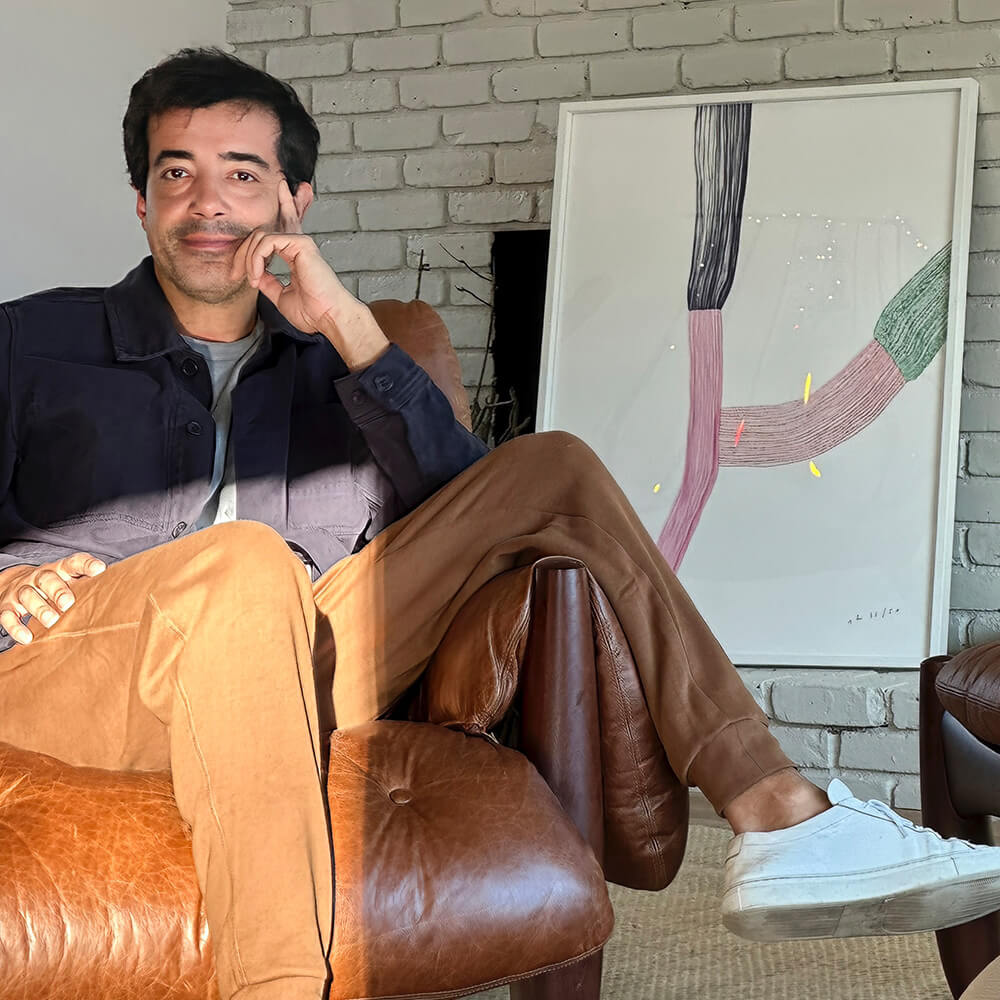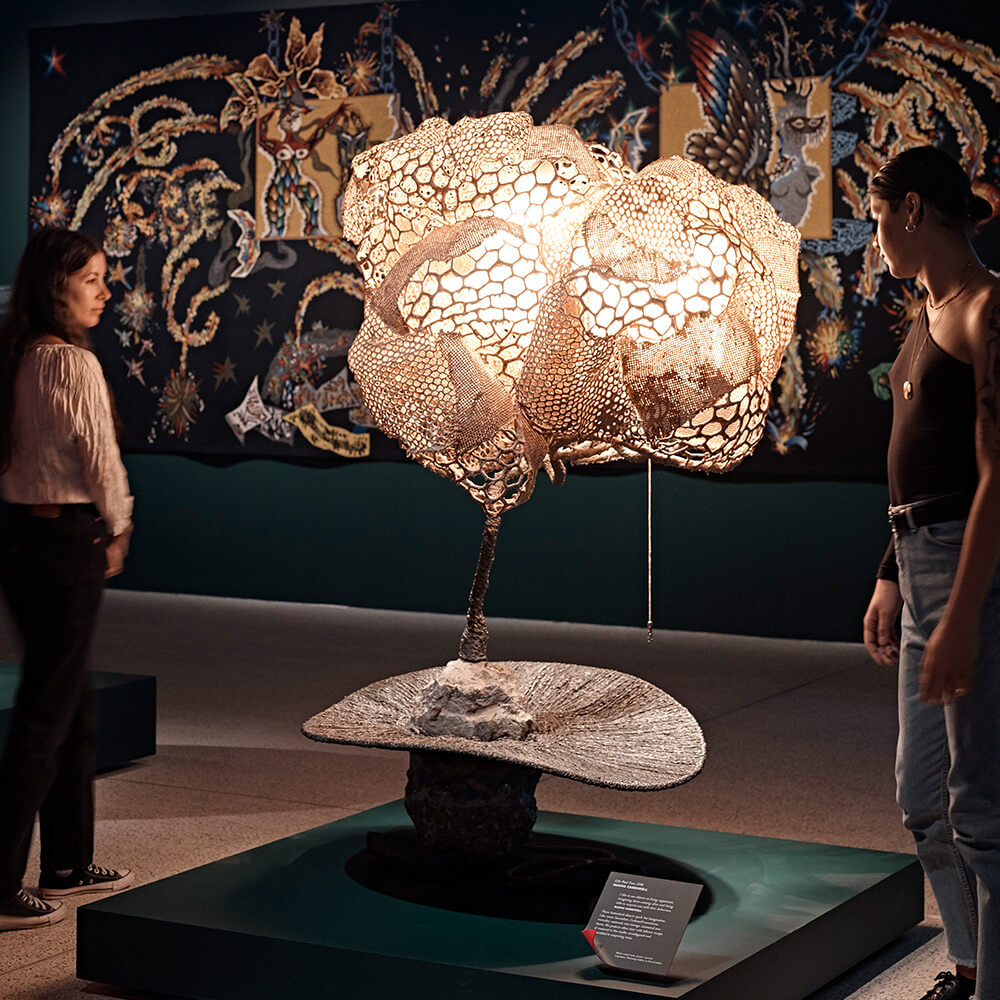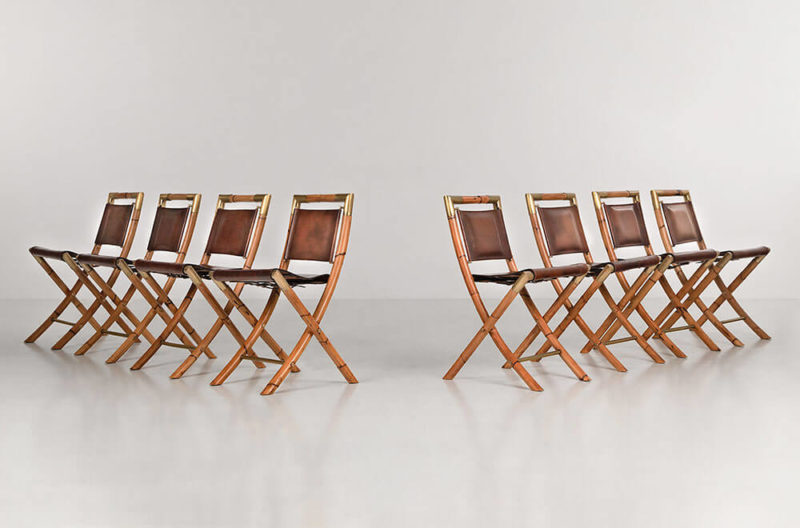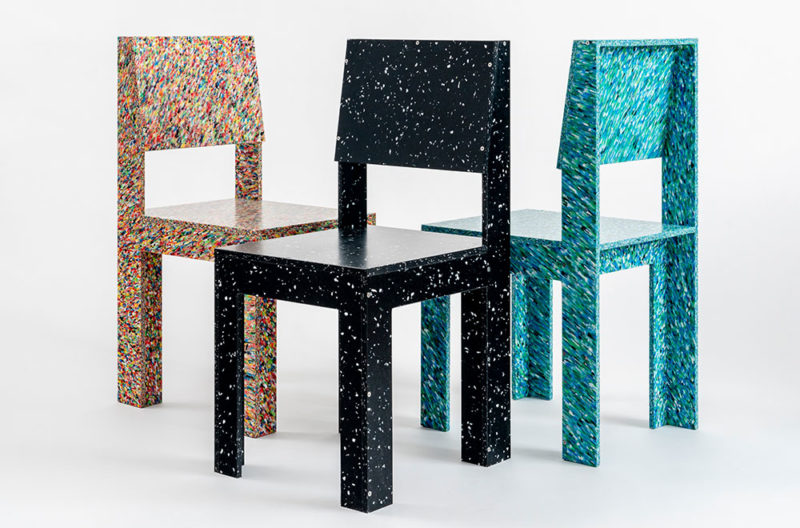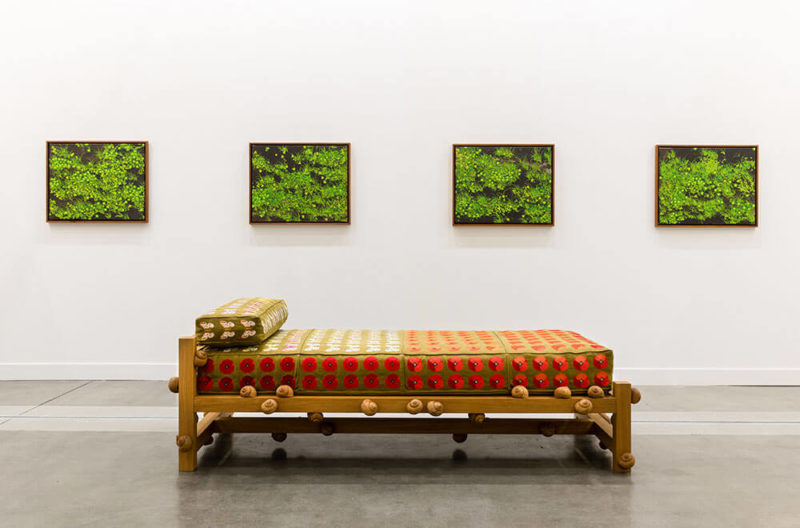‘A Matter of Life and Death’
Curator Jenni Lomax demonstrates that ceramics are simply vital: not just in daily life, but in the practice of art.
Thomas Dane Gallery, Naples
29th March – 28th May 2022
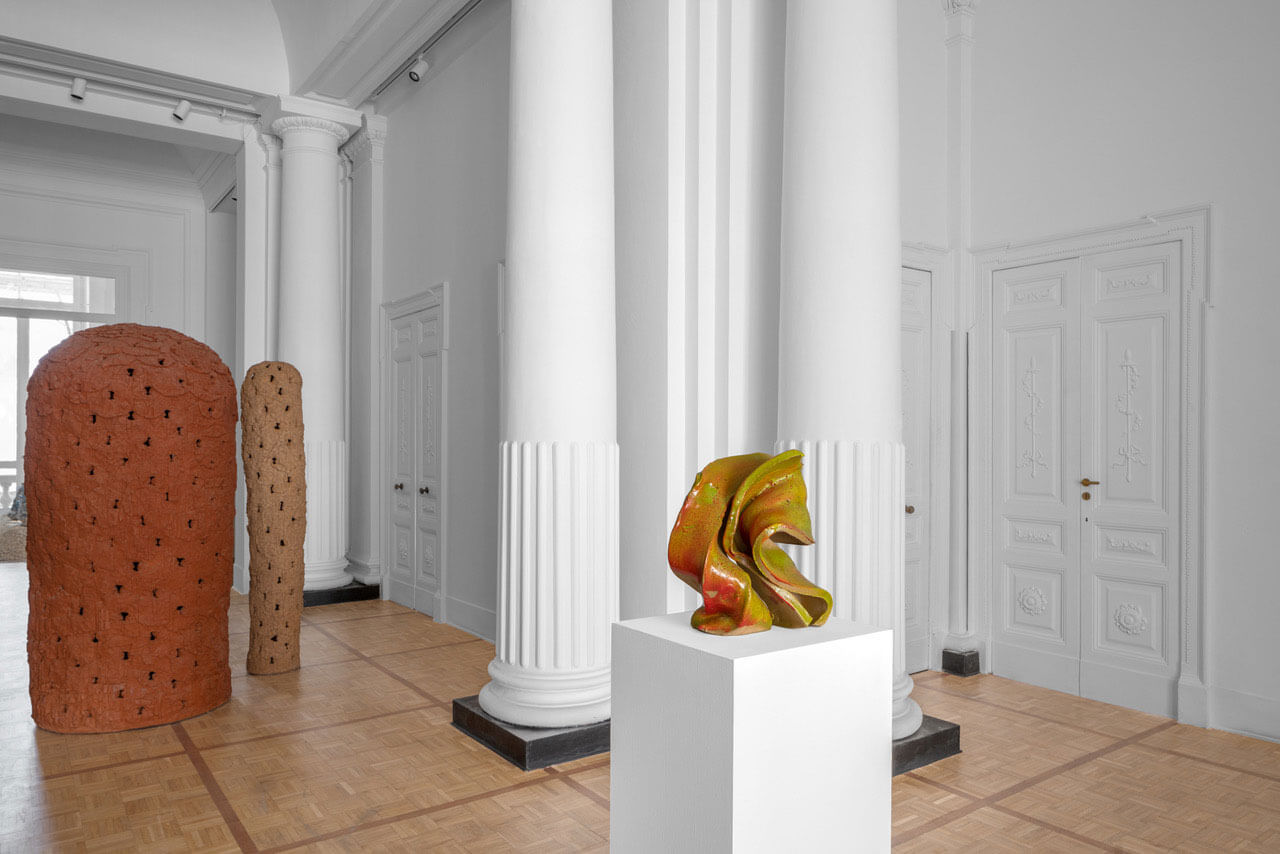
Installation view, ‘A Matter of Life and Death’ with (left) : Lawson Oyekan, ‘Physics Eternal 1’, 2010; (centre) Lynda Benglis ‘Zumaque’, 2013
COURTESY: © Lawson Oyekan, Lynda Benglis & Thomas Dane Gallery / PHOTOGRAPH: Maurizio Esposito
RIGHT NOW, THERE is no shortage of opportunities in the UK to look at ceramics as a contemporary art medium. There is ‘Body Vessel Clay’ at Two Temple Place, focusing on work by black women artists. In Southampton, at the John Hansard Gallery, is a beautifully curated exhibition by Deborah Smith, including standout works by Ryan Gander and Jonathan Baldock. A ceramics juggernaut will be pulling into the Hayward Gallery later in the year.
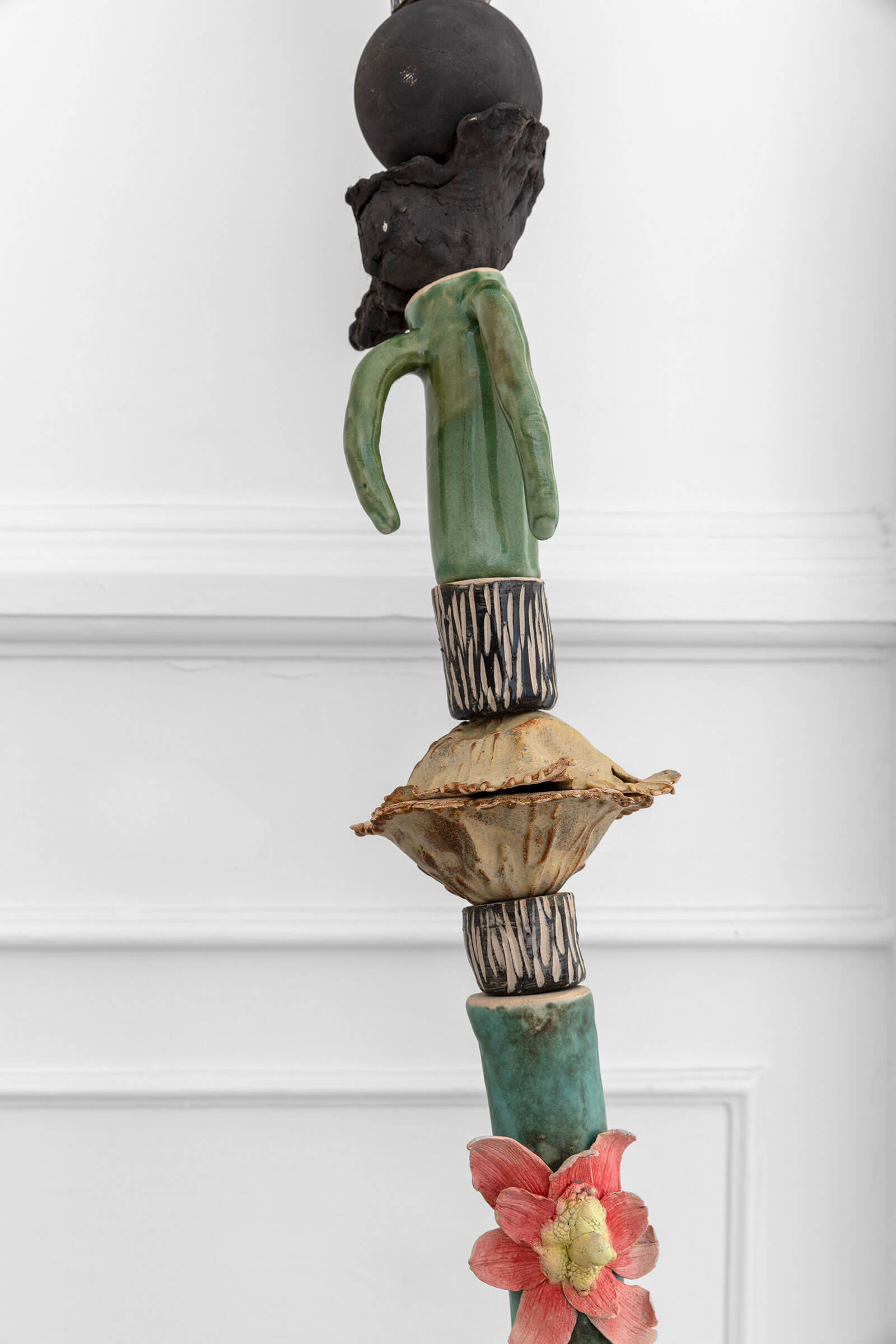
Work by Serena Korda
COURTESY: © Serena Korda & Thomas Dane Gallery / PHOTOGRAPH: Maurizio Esposito
Also noteworthy, albeit further afield, is a show at London gallerist Thomas Dane’s outpost in Naples. Apart from the beauty of the space itself – housed in a historic mansion with views over the Bay of Naples in one direction and the majestic Vesuvius in the other – the exhibition has been presided over by Jenni Lomax, formerly of the Whitechapel Gallery and then Camden Arts Centre. The latter is certainly the only institutional space in London to have its own kiln and studio and of all curators, Lomax is deeply versed in the medium and its myriad possibilities.
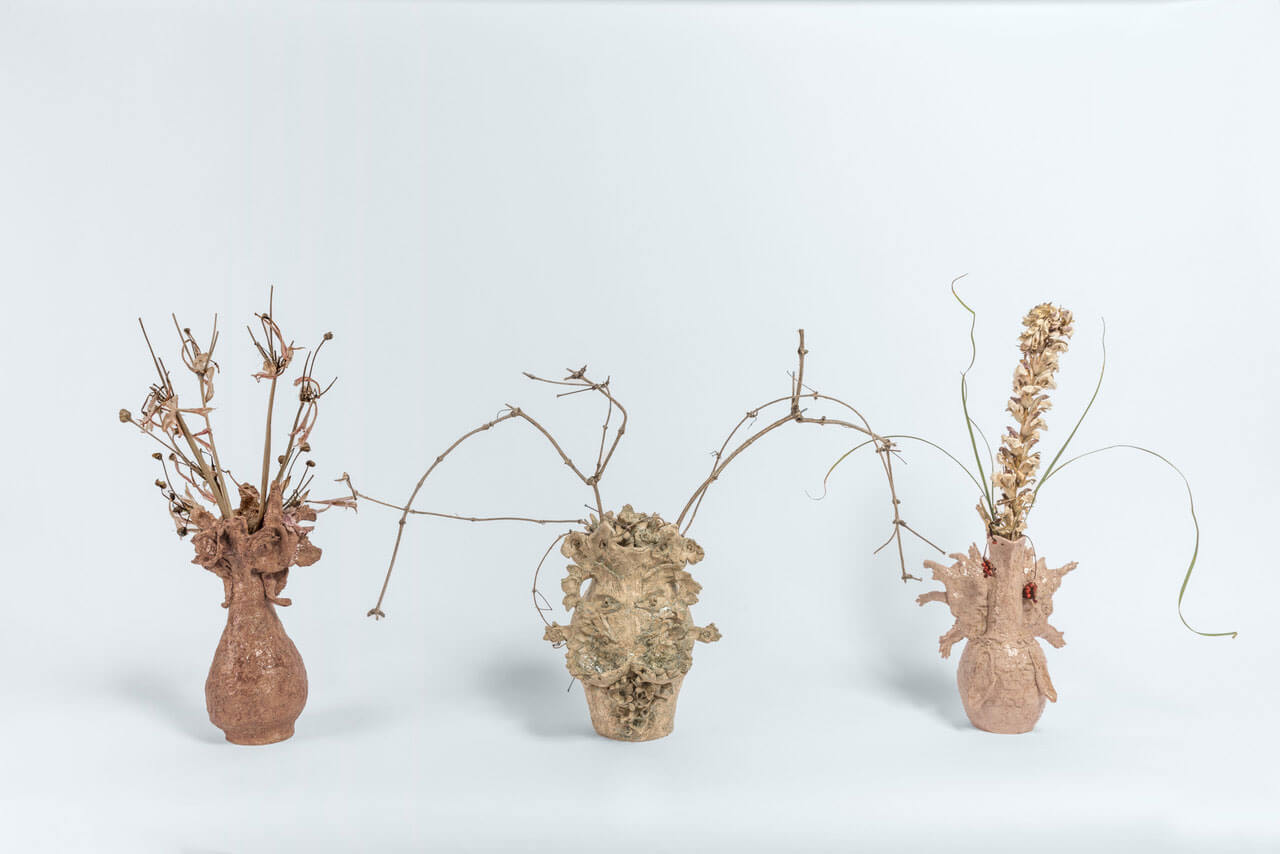
Chiara Camoni, ‘Vasi Farfalla (Tante manine, Farfalla fiore, Babolo)’, 2021
COURTESY: © Chiara Camoni, SpazioA, Pistoia, and Thomas Dane Gallery / PHOTOGRAPH: Maurizio Esposito
Lomax has called the show ‘A Matter of Life and Death’, after the 1949 Powell and Pressburger film in which a shot-down but not-quite-dead fighter pilot finds himself having to bargain for a future in either Heaven or on Earth. The title suits the Neapolitan context, where human life is vibrant as it teeters on the edge of destruction by the forces of nature. But it sets out a view, too, that ceramics are simply vital: not just in daily life, but in the practice of art.
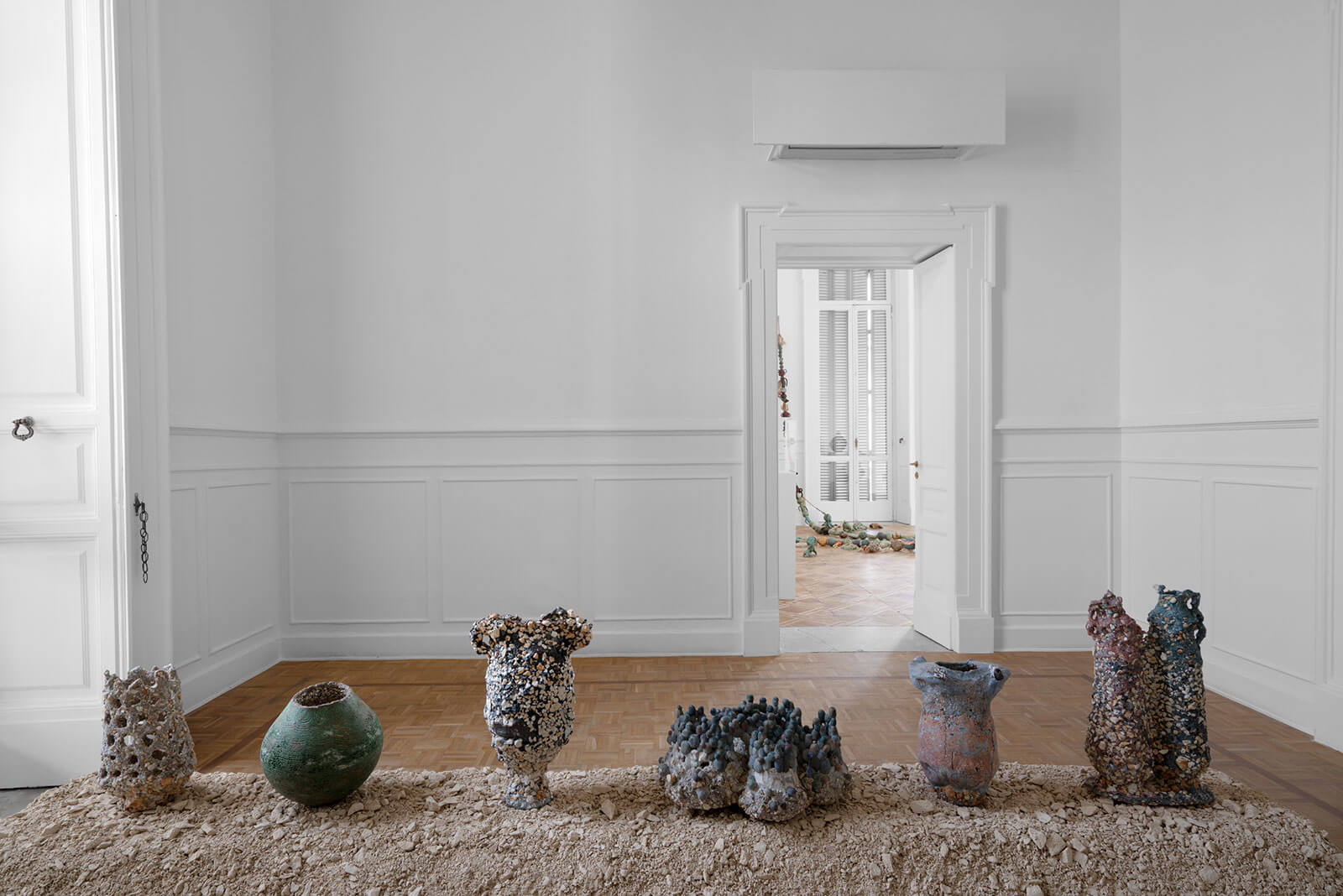
Work by Masaomi Yasunaga
COURTESY: © Masaomi Yasunaga, Thomas Dane Gallery and Nonoka Hill / PHOTOGRAPH: Maurizio Esposito
Lomax has spread her net wide, going back seventy or more years to the quasi-organic work of Lucio Fontana (including a sublime, pierced egg-shaped form), and forwards by inviting the young British artist Phoebe Cummings to make work on the spot during a residency that began this March. That one of Cummings delicate assemblages of flowers and fanciful creatures and plants, made from unfired clay, has already fallen from its spot on the wall and shattered into shards, only underlines the message of fragility that marks the show.
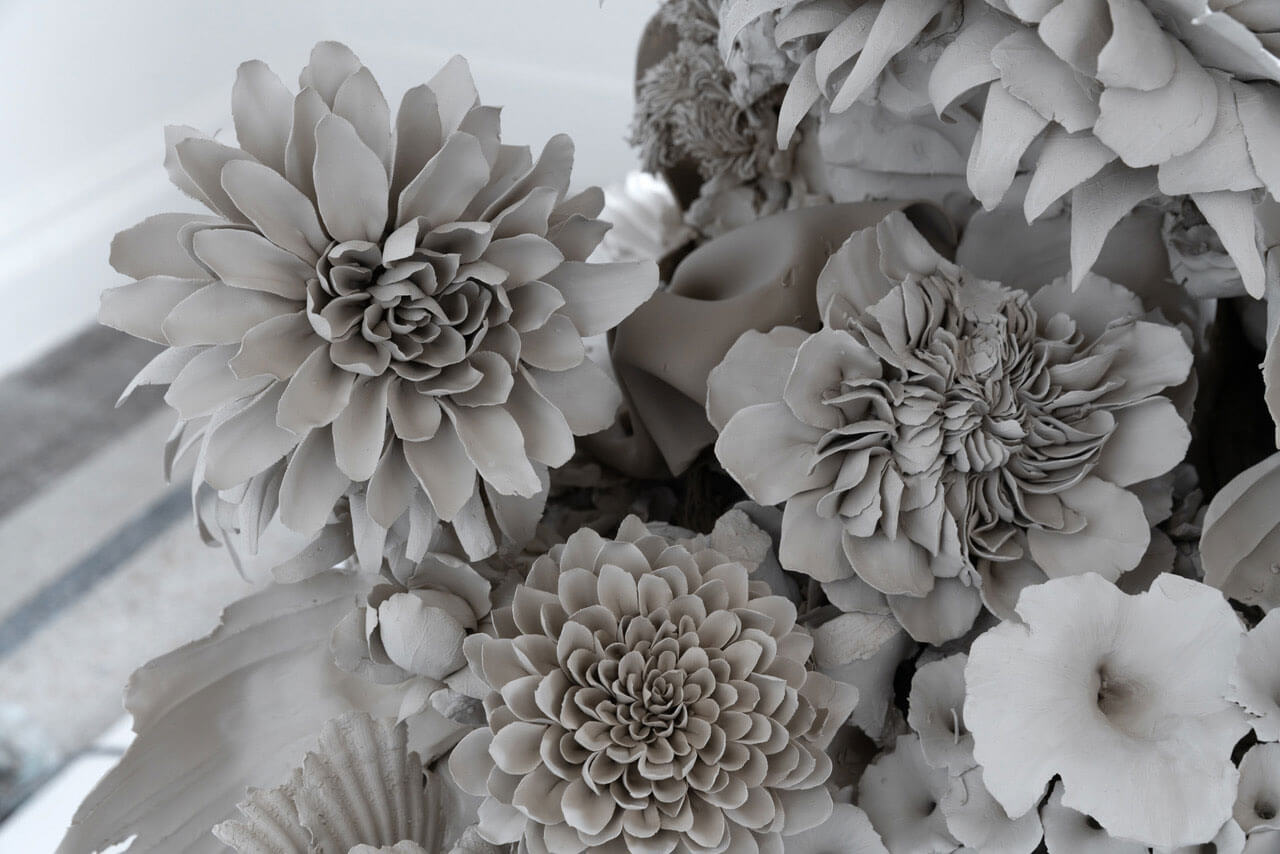
Phoebe Cummings, ‘Prelude’, 2022 (detail)
COURTESY: Phoebe Cummings & Thomas Dane Gallery / PHOTOGRAPH: Maurizio Esposito
After all, firing clay is a high-wire act too, and Magdalene Odundo (one of the Thomas Dane Gallery artists on show here) has often spoken about the heart-stopping moment of jeopardy when she commits the pot to the kiln. Here are some of her myriad successes, demonstrating all the anthropomorphic elegance we now associate with her swollen-bellied vessels, and how she allows the firing ultimately to determine patina and colour.
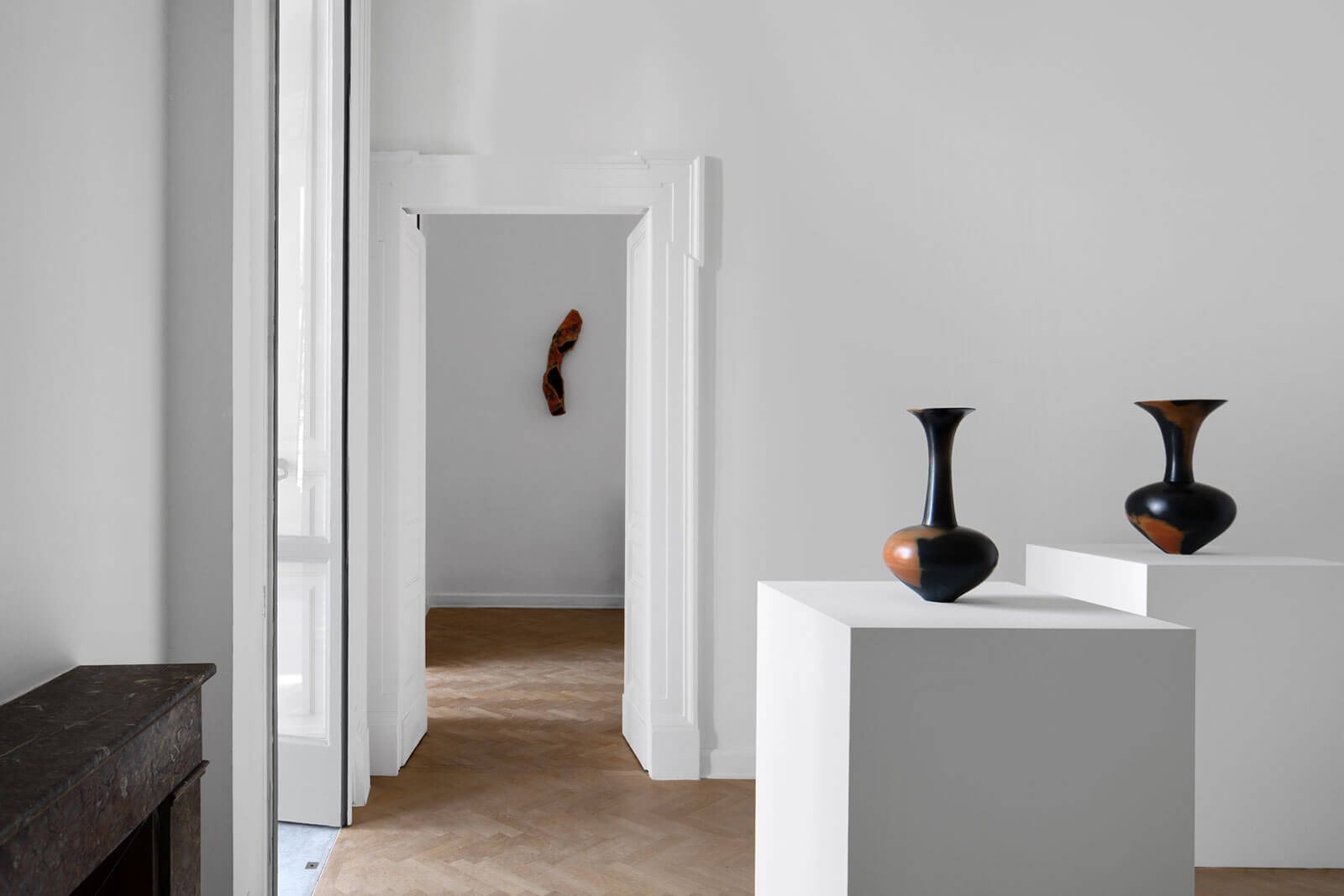
Work by Magdalene A.N. Odundo
COURTESY: © Magdalene A.N. Odundo, Anthony Slayer-Ralph and Thomas Dane Gallery / PHOTOGRAPH: Maurizio Esposito
Lomax was under no pressure to work exclusively with Thomas Dane’s stable, though she has also chosen pieces from Anya Gallaccio, salvaged from a performative work from 2016 in which a 3D printer spooled out a growing mountain of soft clay whorls. There are slithery snake-like knots of clay by Lynda Benglis dripping in green-and-blue glaze, and sliced sculptural vessels from the late Philip King.
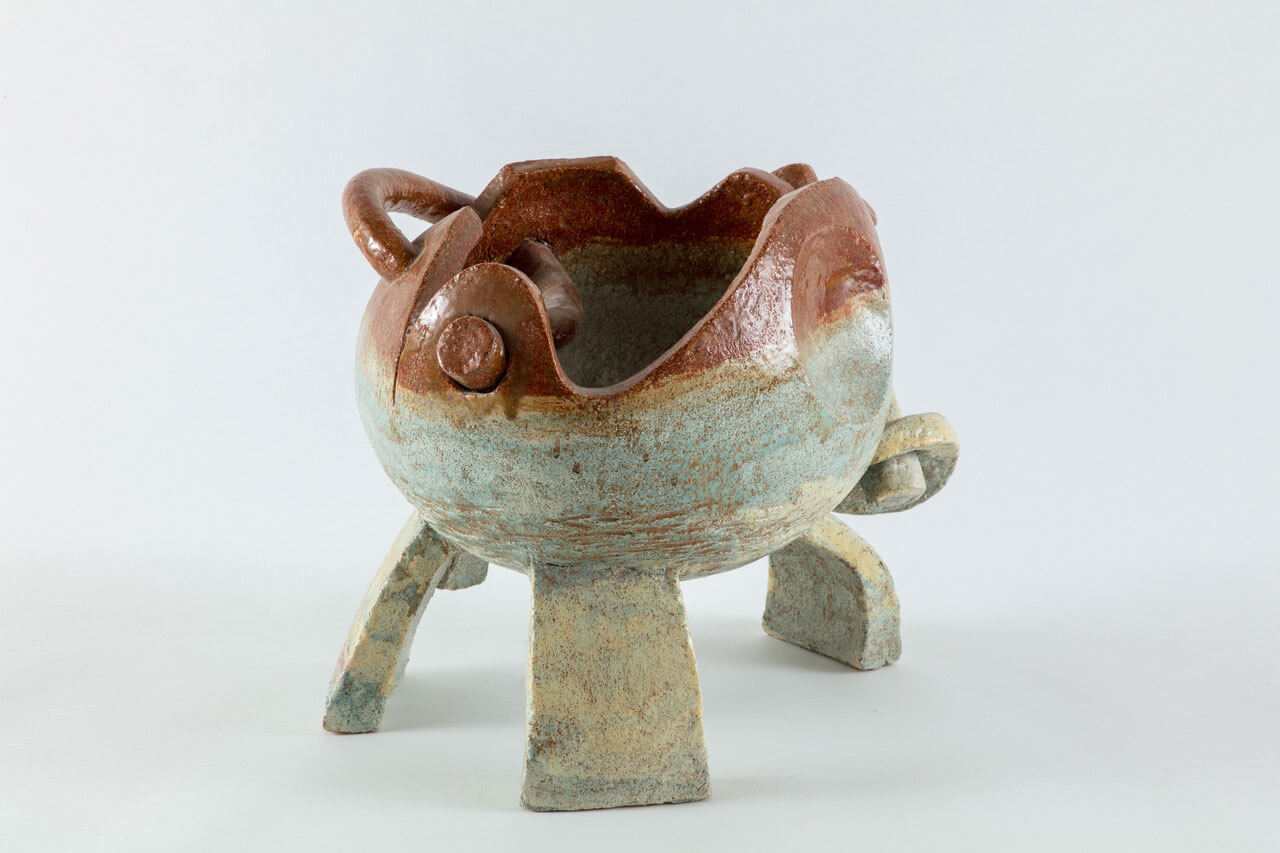
Phillip King, ‘Head’, 1996
COURTESY: The Estate of Phillip King & Thomas Dane Gallery / PHOTOGRAPH: Maurizio Esposito
Since this project is partly autobiographical – Lomax has known King since her Whitechapel days and Odundo since the potter graduated – it’s no surprise that Andrew Lord is here as well. A beneficiary of the Camden Arts Centre kiln and a close friend of Lomax (“a central part of my artistic life”), Lord’s ring of delicate birds – marked with his own fingerprints and often mended with gold, kintsugi-style – underline the connection this show makes between the earthliness of ceramic and the natural conditions in which Naples sits.
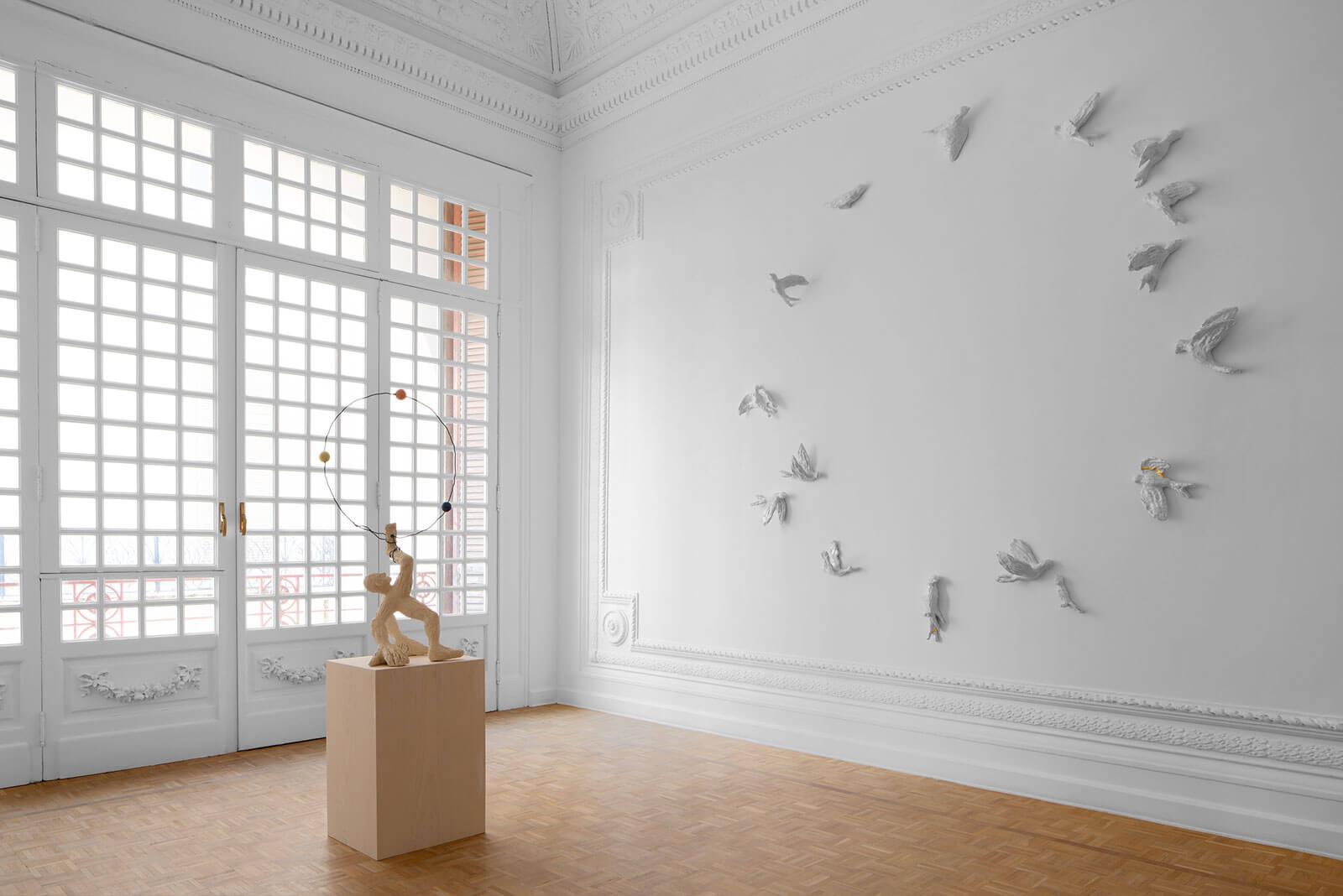
Work by Andrew Lord
COURTESY: © Andrew Lord, Gladstone Gallery & Thomas Dane Gallery / PHOTOGRAPH: Maurizio Esposito
Meanwhile, Serena Korda’s draped ropes of ceramic beads, including shiver-inducing weeping heads, have an intense diaristic quality, made as they were over the space of a difficult pandemic.
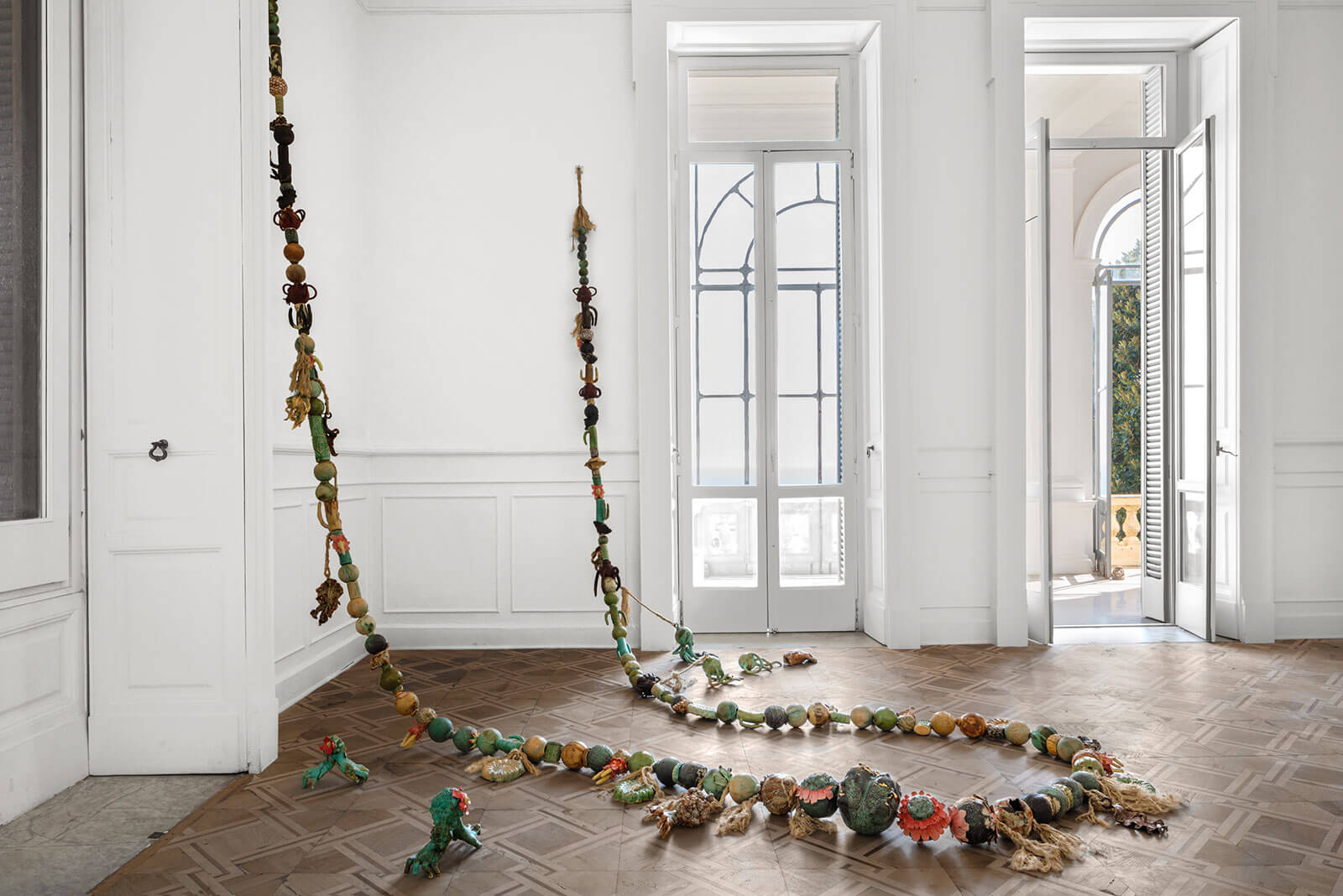
Work by Serena Korda
COURTESY: © Serena Korda & Thomas Dane Gallery / PHOTOGRAPH: Maurizio Esposito
“In the UK especially, there’s always been this ridiculous division in the ceramics world between art and craft,” says Lomax. “What’s more important is how certain artists have always stood out.” In Naples, she has created a clever, and moving, display of the work of some of these people.
‘A Matter of Life and Death’ at Thomas Dane Gallery, Naples.

